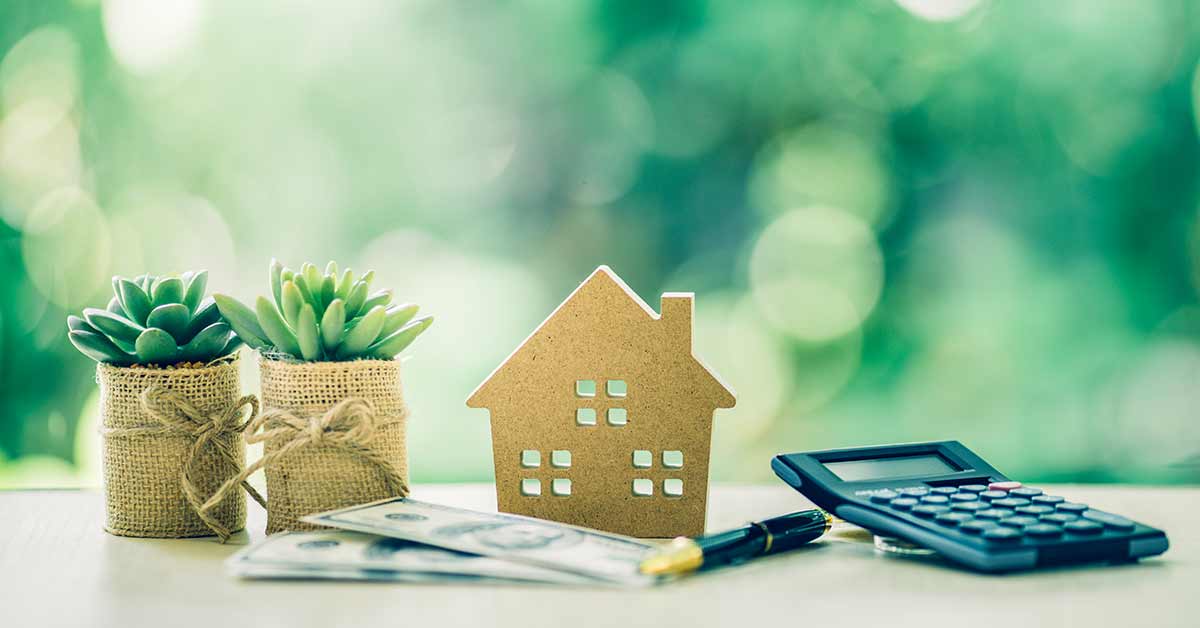More Than a Mortgage: Plan for Hidden Costs When Buying a Home
It’s easy to get caught up in home-buying excitement. These strategies can help you avoid signing on for more house than you can afford.

Not two months after moving into his new house in Westerville, Ohio, Nathan Levy† woke up to a freezing cold house. Levy felt blindsided when he got to the bottom of the issue. The HVAC unit needed to be replaced—a $12,000 expenditure he hadn’t anticipated.
While it’s natural to feel overwhelmed by an unexpected financial hit, costly surprises can be a reality of home ownership. “That’s why it’s key to take a holistic approach to figuring out just how much house you can afford,” says Robert Haley, a branch manager and assistant vice president at Huntington National Bank, who notes that the bank’s home-buying calculators can help with that‡.
“People tend to focus on the mortgage payment but need to take into account a lot more than that,” he says. “Property taxes, any home insurances, maintenance costs, utilities, association fees—those are all expenses that are often overlooked in the home-buying process.” All of those expenses should be considered when calculating the monthly mortgage payment you can afford.
Fortunately, Levy had done just that and was able to pay for his HVAC system surprise. Here are some tips to help keep you in good shape.
Get pre-approved for your mortgage today so you can shop with confidence tomorrow.
In a competitive house-buying market, a pre-approved mortgage can help. A pre-approval can mean that you’ve met the requirements for a mortgage, and you know how much house you can afford. It can also show sellers, who may be picking between several offers, that you’re a serious, confident buyer. It may even mean having your offer chosen over a higher offer from a buyer who isn’t pre-approved. Getting pre-approved by Huntington starts here.
Learn More
It’s key to take a holistic approach to figuring out just how much house you can afford.
Robert Haley, Branch Manager and Assistant Vice President
Huntington National Bank
‡
- Realize that owning costs more than renting. Rob Bertman§, founder of the Family Budget Expert website, recommends reducing an affordable rental payment by about 25 percent to get to a comfortable mortgage payment target. “Some people think it’s an even swap, but they’re not accounting for all the added expenses of owning a home,” he says.
- Factor in new homeowner expenses. When Sarah Phillips¶ and her husband decided to buy after renting in Geneva, Illinois, they created a budget that covered not only what they needed for the deposit, down payment, closing costs, and realtor fees, but also “back-end-of-the-sale purchases,” such as bathroom fixtures and new furnishings.
Planning for the costs of small upgrades and furnishing your home will help you make the most of your purchase, says Bertman. “Everyone likes to put their own stamp on a house.”
- Factor in your variable spending. Regular monthly bills, such as utilities and auto insurance, are easy to remember. “It’s the cost of living expenses that people leave off, such as going to the movies, dining out, staying in a hotel for travel, or attending a concert,” says Haley. Other culprits often missed include travel, birthday gifts, and holiday shopping.
- Stay sane. Keeping home-buying emotions in check can be challenging. Phillips and her husband, in their 50s, sought to “think strategically, not emotionally. We had to think about the next big financial step—retirement,” says Phillips. They committed to walk away from houses priced outside of their budget. “Having an abundance mind-set helps,” she notes. “There are always other homes if this one doesn't work out.”
†Nathan Levy, interview, March 2019.
‡Interview with Robert Haley, Huntington National Bank, March 2019.
§Interview with Rob Bertman.
¶Interview with Sarah Phillips.
#Loans subject to credit application and approval.
The information provided is intended solely for general informational purposes and is provided with the understanding that neither Huntington, its affiliates nor any other party is engaging in rendering tax, financial, legal, technical or other professional advice or endorsing any third-party product or service. Any use of this information should be done only in consultation with a qualified and licensed professional who can take into account all relevant factors and desired outcomes in the context of the facts surrounding your particular circumstances. The information in this document was developed with reasonable care and attention. However, it is possible that some of the information is incomplete, incorrect, or inapplicable to particular circumstances or conditions. NEITHER HUNTINGTON NOR ITS AFFILIATES SHALL HAVE LIABILITY FOR ANY DAMAGES, LOSSES, COSTS OR EXPENSES (DIRECT, CONSEQUENTIAL, SPECIAL, INDIRECT OR OTHERWISE) RESULTING FROM USING, RELYING ON OR ACTING UPON INFORMATION IN THIS DOCUMENT EVEN IF HUNTINGTON AND/OR ITS AFFILIATES HAVE BEEN ADVISED OF OR FORESEEN THE POSSIBILITY OF SUCH DAMAGES, LOSSES, COSTS OR EXPENSES.
Third-party product, service and business names are trademarks/service marks of their respective owners.



